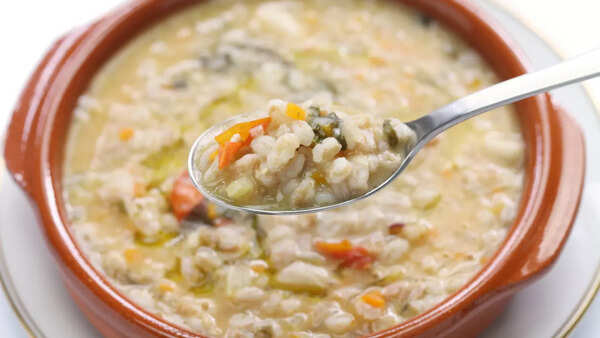Nutritional Profile of Khapli Wheat
Khapli Wheat is nutritionally superior, boasting high levels of dietary fiber, essential proteins, vitamins, and minerals such as magnesium, iron, and B vitamins. Its dietary fiber content enhances digestive health and prevents constipation, while its nutrient density supports heart health by aiding in the reduction of blood pressure and cholesterol levels. Particularly beneficial for individuals managing diabetes, Khapli Wheat’s low glycemic index helps in stabilizing blood sugar levels. Furthermore, its satiety-inducing properties make it an excellent choice for those focusing on weight management.
Organic Farming and Sustainability
The commitment to organic farming through the cultivation of Khapli Wheat. Adhering to natural farming methods, the farm avoids synthetic pesticides and fertilizers, allowing Khapli Wheat to thrive even in challenging soil conditions. This resilience underscores the grain’s sustainability and the farm’s dedication to not compromising land health.
Organic farming practices, including crop rotation, compost application, and green manure use, are pivotal in maintaining soil health, reducing environmental pollution, and enhancing biodiversity. Choosing Khapli Wheat from organic sources supports a philosophy that values earth’s well-being and future generations, making every grain a step towards more sustainable and eco-friendly agriculture.
Environmental Benefits
The cultivation of Khapli Wheat offers significant environmental advantages. Organic farming techniques diminish the need for chemical inputs, thereby reducing soil and water pollution. Sustainable cultivation practices enhance soil fertility, promote carbon sequestration, and aid in climate change mitigation. Moreover, Khapli Wheat’s adaptability to diverse climates and soils contributes to agricultural biodiversity and ecological balance, ensuring farming practices benefit rather than harm the environment.

A Sustainable Future
Opting for Khapli Wheat transcends personal health benefits; it represents a pledge to nurture the planet. As the core of organic and sustainable farming practices, Khapli Wheat is a beacon for future agriculture, aligning with a global shift towards sustainable diets that reflect a consciousness towards health and environmental stewardship.
Khapli Wheat is more than a nutritious staple; it embodies a shift towards dietary habits that are health-conscious and environmentally responsible. Its role in organic farming demonstrates the potential to produce high-quality, nutritious food while promoting a sustainable agricultural model. For those seeking to improve their diet and impact the environment positively, Khapli Wheat is an exemplary choice.
Incorporating Khapli Wheat into one’s diet supports a system that values planetary health as much as individual health. Its nutritional richness, coupled with the benefits of organic farming, positions Khapli Wheat as an ideal selection for those focused on nutrition, health, and sustainability. By choosing Khapli Wheat, consumers endorse farming practices that preserve our earth for future generations.
Contributed by: Satyajit Hange, Cofounder Farmer, Two Brothers Organic Farms
!(function(f, b, e, v, n, t, s) {
function loadFBEvents(isFBCampaignActive) {
if (!isFBCampaignActive) {
return;
}
(function(f, b, e, v, n, t, s) {
if (f.fbq) return;
n = f.fbq = function() {
n.callMethod ? n.callMethod(…arguments) : n.queue.push(arguments);
};
if (!f._fbq) f._fbq = n;
n.push = n;
n.loaded = !0;
n.version = ‘2.0’;
n.queue = [];
t = b.createElement(e);
t.async = !0;
t.defer = !0;
t.src = v;
s = b.getElementsByTagName(e)[0];
s.parentNode.insertBefore(t, s);
})(f, b, e, ‘https://connect.facebook.net/en_US/fbevents.js’, n, t, s);
fbq(‘init’, ‘593671331875494’);
fbq(‘track’, ‘PageView’);
};
function loadGtagEvents(isGoogleCampaignActive) {
if (!isGoogleCampaignActive) {
return;
}
var id = document.getElementById(‘toi-plus-google-campaign’);
if (id) {
return;
}
(function(f, b, e, v, n, t, s) {
t = b.createElement(e);
t.async = !0;
t.defer = !0;
t.src = v;
t.id = ‘toi-plus-google-campaign’;
s = b.getElementsByTagName(e)[0];
s.parentNode.insertBefore(t, s);
})(f, b, e, ‘https://www.googletagmanager.com/gtag/js?id=AW-877820074’, n, t, s);
};
function loadSurvicateJs(allowedSurvicateSections = []){
const section = window.location.pathname.split(‘/’)[1]
const isHomePageAllowed = window.location.pathname === ‘/’ && allowedSurvicateSections.includes(‘homepage’)
if(allowedSurvicateSections.includes(section) || isHomePageAllowed){
(function(w) {
var s = document.createElement(‘script’);
s.src=”https://survey.survicate.com/workspaces/0be6ae9845d14a7c8ff08a7a00bd9b21/web_surveys.js”;
s.async = true;
var e = document.getElementsByTagName(‘script’)[0];
e.parentNode.insertBefore(s, e);
})(window);
}
}
window.TimesApps = window.TimesApps || {};
var TimesApps = window.TimesApps;
TimesApps.toiPlusEvents = function(config) {
var isConfigAvailable = “toiplus_site_settings” in f && “isFBCampaignActive” in f.toiplus_site_settings && “isGoogleCampaignActive” in f.toiplus_site_settings;
var isPrimeUser = window.isPrime;
if (isConfigAvailable && !isPrimeUser) {
loadGtagEvents(f.toiplus_site_settings.isGoogleCampaignActive);
loadFBEvents(f.toiplus_site_settings.isFBCampaignActive);
loadSurvicateJs(f.toiplus_site_settings.allowedSurvicateSections);
} else {
var JarvisUrl=”https://vsp1jarvispvt.indiatimes.com/v1/feeds/toi_plus/site_settings/643526e21443833f0c454615?db_env=published”;
window.getFromClient(JarvisUrl, function(config){
if (config) {
loadGtagEvents(config?.isGoogleCampaignActive);
loadFBEvents(config?.isFBCampaignActive);
loadSurvicateJs(config?.allowedSurvicateSections);
}
})
}
};
})(
window,
document,
‘script’,
);
Source link

